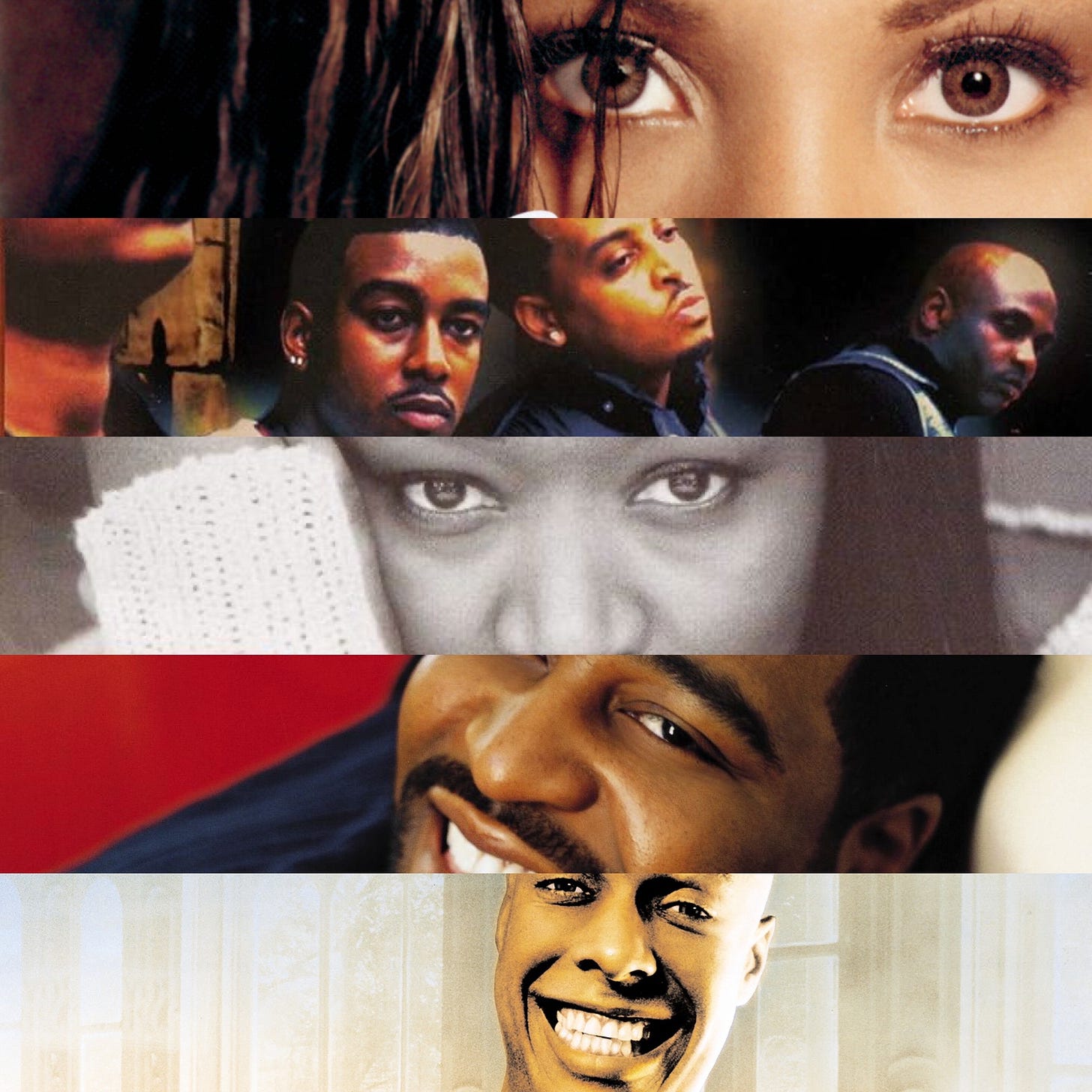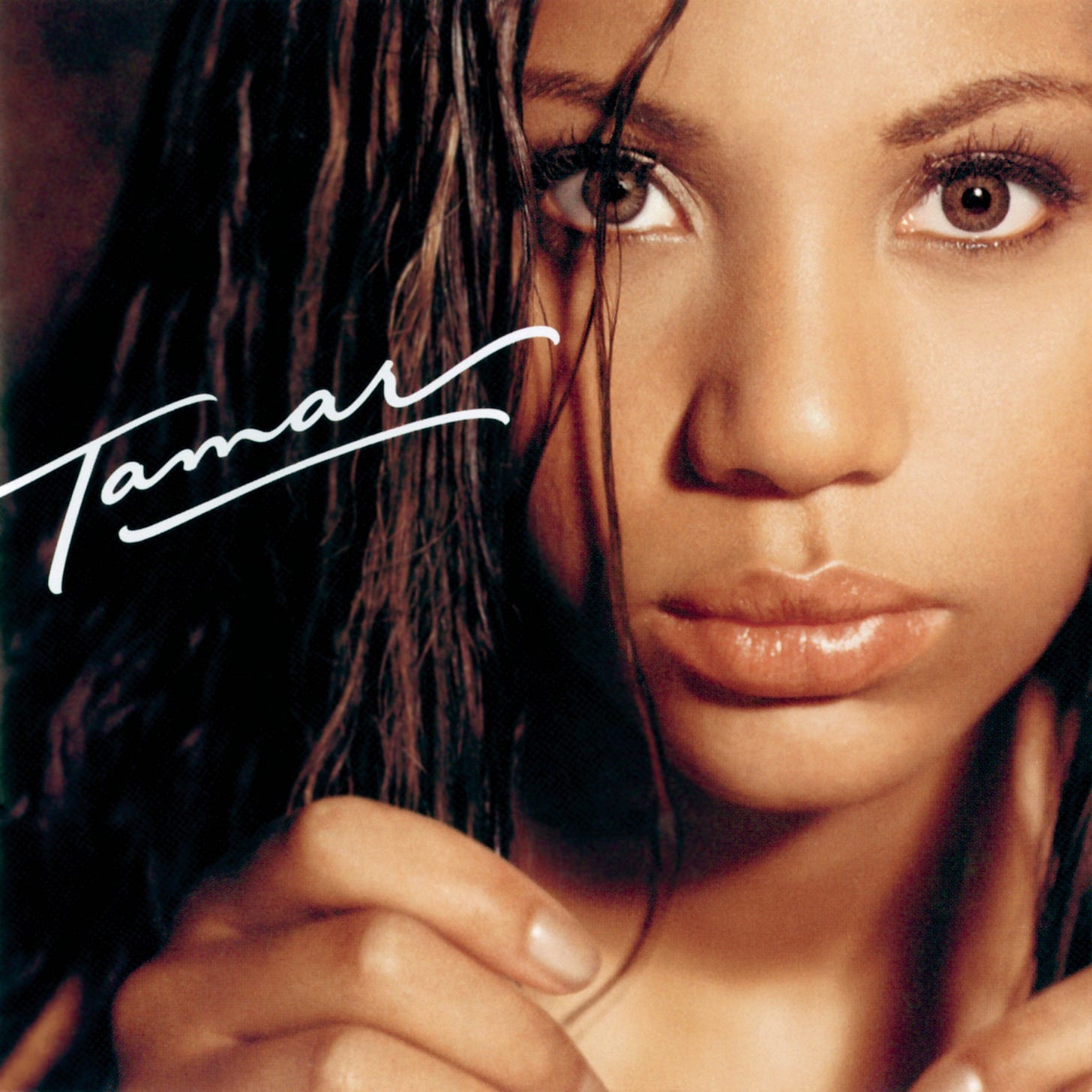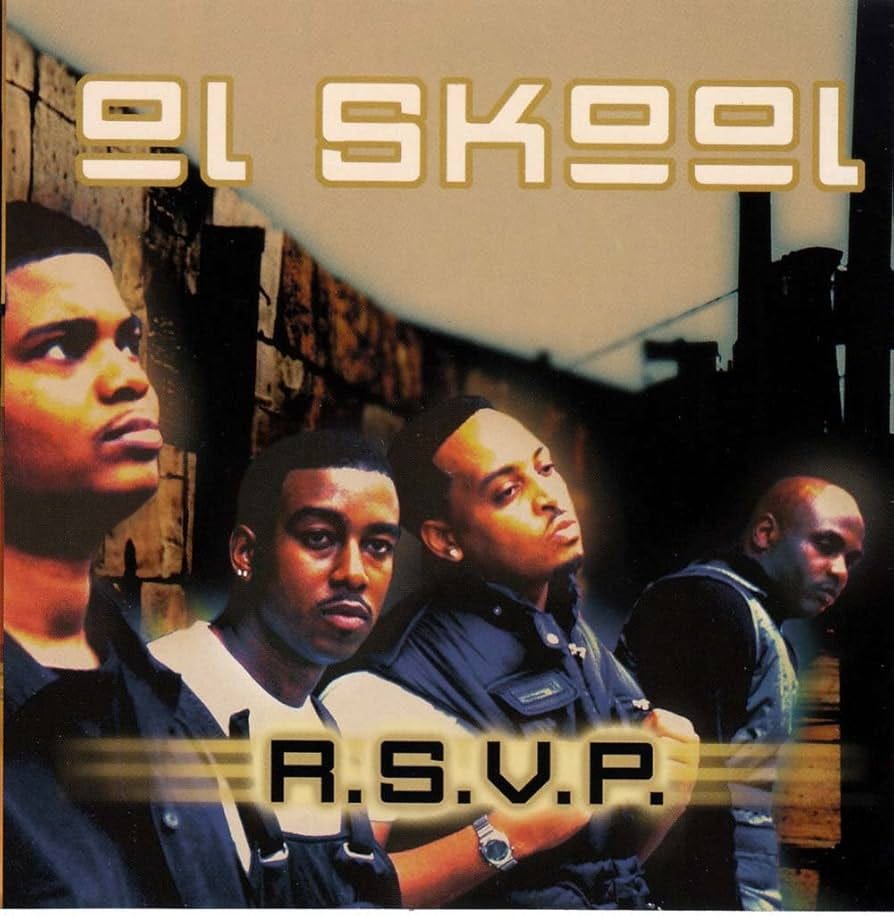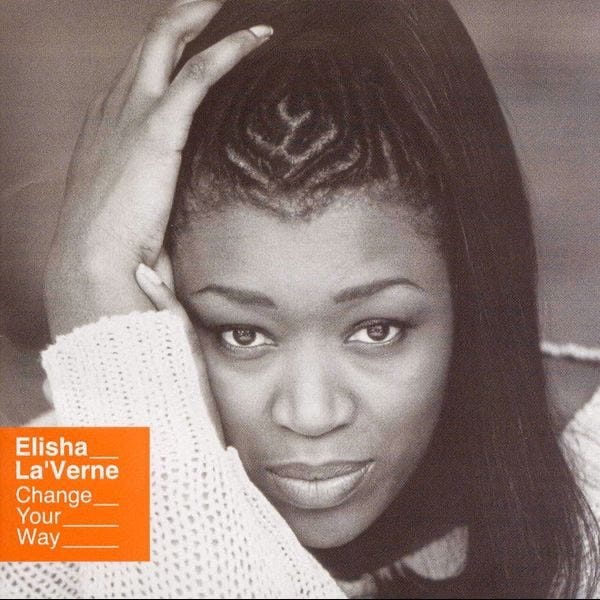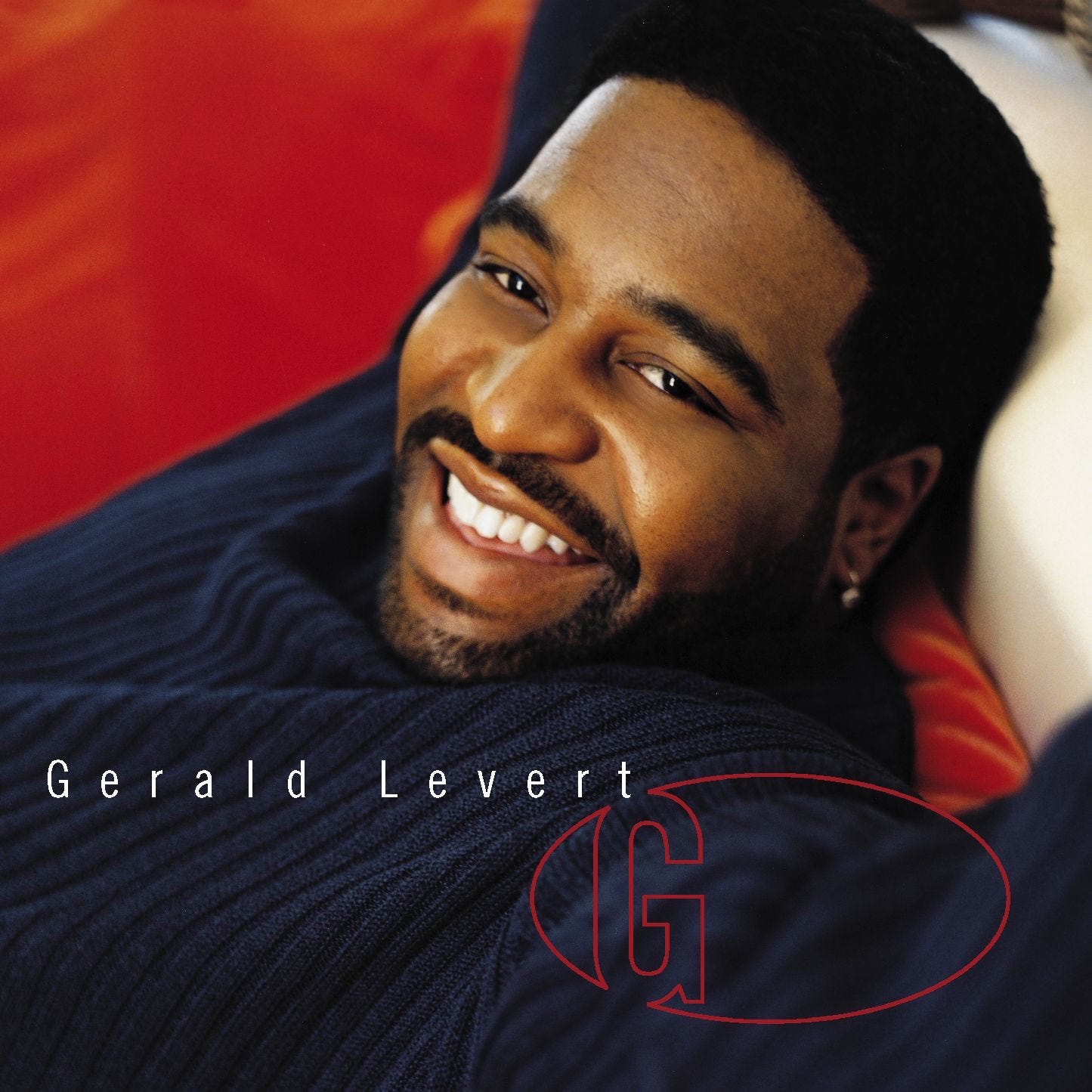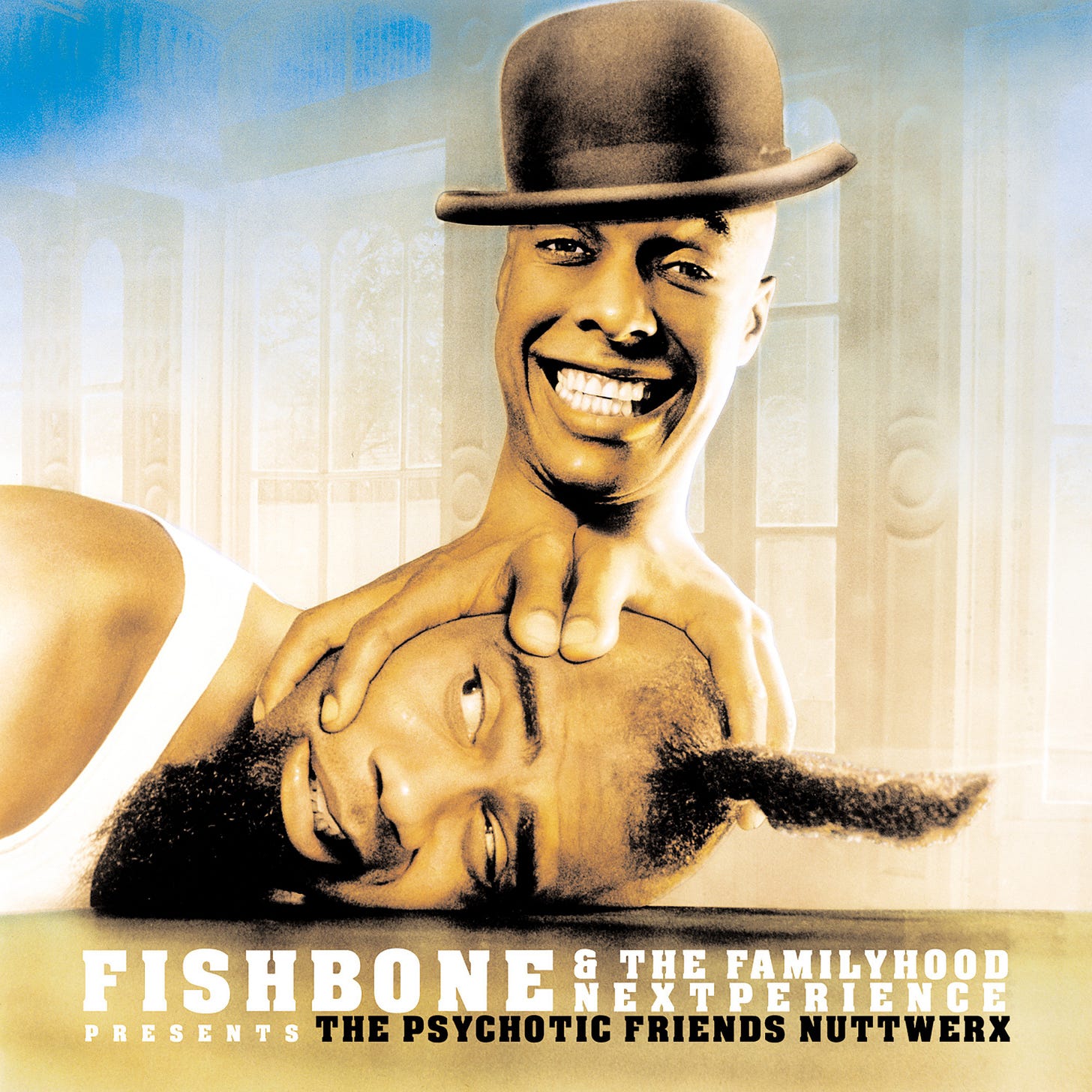Five 2000 R&B Albums from the Awkward Center of the Mainstream
Follow Tamar, Ol’ Skool, Elisha La’Verne, Gerald Levert, and Fishbone, and you get a different map of the year 2000. Follow the producers’ names in the credits, and it sharpens even more.
Twenty-five years later, the year 2000 feels like a hinge—R&B standing between analog luxury and digital precision, between the old A&R era and the algorithm’s rise. Five 2000 R&B Albums revisits that crossover moment, when singers, producers, and labels were still negotiating how grown-up soul could live inside a pop machine. The series looks back at that moment through the projects that defined its balance, where records caught between slow jams and singles culture, between the sound of human touch and the pull of technology (even if specific albums aren’t rated highly or are forgotten amid competition).
Tamar Braxton, Tamar
After the Braxtons released So Many Ways in 1996 and drew attention as Toni’s kid sisters, the family’s youngest and main vocalist, Tamar, now steps out as the second Braxton sister to go solo after Toni. The album comes out on DreamWorks, the label that put out Dave Hollister’s album last year. Tamar had been cutting demos for this solo project with Christopher “Tricky” Stewart—who did great work on the Braxtons’ “Slow Flow”—since around ‘98, and he’s the one who actually shopped her to DreamWorks. Having split from Sean Hall and thrown himself into those “pouncy” tracks for JT Money and Solé, Tricky clearly decided to go all‑in on Tamar. The core production team here is that Atlanta axis: Tricky; Jermaine Dupri, who handled the lead single “Get None”; and Tim & Bob, who, like Tricky, contribute five tracks.
Dupri’s “Get None” (with raps from Dupri and Amil) is a kind of muttered incantation of a song, co‑written by Noontime’s Bryan‑Michael Cox and Tamara Savage, who also teamed with Dupri on Jagged Edge’s “Key to the Range.” Tamar’s vocal on it doesn’t hit especially hard, but Tricky gives her a sort of sister track in “Can’t Nobody,” and there’s that mid‑tempo with the crooked beat, “You Don’t Know.” Both feel like things that simply couldn’t have existed in any other era, and they leave a pretty vivid impression—vivid enough that the Missy Elliott cut “No Disrespect” ends up sounding like one of the record’s sharpest moments.
When you think “pouncy,” though, you’re really talking Tim & Bob’s mid‑tempos—“Your Room,” “Words,” “Miss Your Kiss.” Tight, fat grooves, and Tamar’s presence riding them in a way that calls back to what made the Braxtons’ harmonies work in the first place. Her singing can get a little overamped in spots, but on something slightly “Western‑flavored” like “Tonight,” her lines come out as naturally as talking, and you catch yourself thinking, right, this really is the same bloodline. “Get Mine” and the easy‑going “You Don’t Know” carry that same “only now” feeling in their mid‑tempo swing; that modernity is a big part of the album’s charge.
What really seals that feeling, though, are the Darrell “Delite” Allamby cuts. The jazzy touch he brings to “Money Can’t Buy You Love” and the ballad “Once Again” is first‑rate; he already proved what he could get out of singers on earlier work, but these are on that level or better, and they got me good. On “Money Can’t Buy You Love,” she suddenly shoots up into this Mariah‑style ultra‑high soprano, and you hear how much her own love of Mariah Carey’s singing has left a shadow on her approach. On the restless “The Way It Should Be,” she even comes off a bit like Chanté Moore, while on ballads like “If You Don’t Wanna Love Me” and “I’m Over You,” co‑written with Tricky and LaTocha Scott, that slightly husky tone and her phrasing start to echo Mariah again. Whether that’s a plus or a minus just depends on how willing you are to roll with that resemblance. — Brandon O’Sullivan
Ol’ Skool, R.S.V.P.
Thanks to K‑Ci & JoJo and Dru Hill grinding it out, we’ve suddenly got more vocal groups built around a hard, aggressive lead than smooth, Boyz II Men‑style harmony outfits chasing perfect blends. Ol’ Skool came up as one of those groups that really dig into what a vocal group can be at its core, alongside Silk, who also debuted under Keith Sweat’s wing. On this new album, their first in two years, Ol’ Skool have lost their most potent spice: Pookie (Jerome Rain). He was that wailing, barrel‑chested shouter who’d just break loose and run wild in the upper range, so his absence leaves a real hole. The new guy, Jason Little, is a handsome singer you could easily latch onto, but he’s more in that Inskko/En Vogue‑adjacent, smooth‑type lane and doesn’t bring quite the same raw power.
That said, this isn’t some “they fell off” story. The remaining members do a lot to fill the gap themselves, and they’ve added some extra muscle around them. The biggest surprise is how much the main leads, Curtis Jefferson and Bobby Crawford, have grown. Curtis, especially, handles the weighty ballads like “All The Way” and “Guilty” by clearly separating the mood‑setting first half from the late‑song climaxes, and on the smoother “I Can’t Sleep” he manages a soft but emotional solo performance that really stirs the heart. Bobby’s stepped his game up, too, with that “just about to go into a full sprint but holding back” kind of singing that brings Johnny Gill to mind. The little Gerald Levert‑style crying‑lick gimmicks are executed so cleanly that they’re just plain exciting to hear. Strengthening that central framework lifts the whole vocal picture; you come away feeling like the group’s entire foundation has been raised a notch.
Keith Sweat, who only had a single credit on the last album, now turns up on six tracks—about half the record—as producer and composer, bringing Kevin Johnson, Wiz, Chanz, and others with him to really back the group. The lead single “Only One” is the kind of up‑tempo cut that grabs you right on the opening line and, trends aside, fits this group perfectly. On “All The Way,” just hearing that croaky Keith Sweat tone slip faintly into the chorus is enough to make you drool like Pavlov’s dog. My own pick is “I Can’t Sleep.” Chanz—Marvin Parkman, always in demand off his Organized Noize associations—shows an aesthetic sense here that feels like a hidden spring in the forests around Atlanta. Sure, you need Dru Hill‑type throwdowns like “Bedroom,” but it’s these straightforwardly beautiful songs where a classic vocal group really shows what it can do. — Jill Wannasa
Elisha La’Verne, Change Your Way
I’ve never had especially strong feelings about Elisha La’Verne one way or another, but something about this third album pulled me in. There was something I couldn’t quite catch from the first single, “I Don’t Mind,” where she’s in full “Elisha mode,” that suddenly came into focus on the follow‑up single “You Are the One,” a stripped‑down acoustic‑guitar ballad. It made clear she isn’t just some marionette of a singer, but an independent creator who hears the voice itself as part of the total sound. A lot of the album is made up of these refreshing tunes that, like “You Are the One,” use acoustic guitar effectively. According to the A&R in charge, that wasn’t even planned as a concept; it just shows how clearly the producers grasped—and were made to grasp—her artist image and where she wants to go as a writer.
Marlon McClain, who really draws out her basic appeal on “You Are The One,” forms the core here, joined by Flight Time’s “Big Jim” Wright on “So Delicious” and Marc Nelson, who not only produced but duets on “That’s All I Want.” Old ally T‑Kura also shows up with remixes of “Should’ve Been True (Giant Swing Remix)” and “Is It Good to You (Remix #3),” plus the title message song “Change Your Way,” which doubles as the theme for Persona 2: Eternal Punishment. If I had to nitpick, on songs like “So Very Hot” there are moments where the subtlety of the ad‑libs feels a bit thin and the singing itself a little too flat. Maybe it’s that the voice doesn’t yet have the sheer individuality or depth you’d call “throat character.” That’s where she differs from someone like Des’ree. Even so, the vocal depth you hear on MASH productions like “Ohhh” and “One Day” is more than enough to make you look forward to what she does next. There’s a nice little game in hearing how the “cards” she personally holds and the “trump cards” the producers bring keep trading off the upper hand—that’s one very current face of R&B. — Kendra Vale
Gerald Levert, G
On Gerald Levert’s new album, the first three tracks are finally all produced by 2000 Watts. Given the 2000 Watts trail that runs from LSG’s “My Body” through the previous album Love & Consequences—“Thinkin’ Bout It,” “Taking Everything”—this is a natural development, but it’s still a little bittersweet. Gerald’s a producer who, if you count songs he’s given to others, has racked up fourteen R&B chart number ones; you want him operating full‑on at the front lines as a producer, not just as a singer. That said, 2000 Watts do good work. These tracks basically follow the pattern of the songs I just mentioned, but in a way that solidifies their style. Considering the last album went platinum, it’s hard to argue this isn’t the right move. “Nothin’ to Somethin’” in particular is a spot where Gerald really cuts loose vocally.
And then there’s “It Hurts Too Much to Stay,” his duet with Kelly Price. This one is serious. The way those two voices lock into each other, you can only sit there and let yourself be carried away by it. With the first single “Mr. Too Damn Good” as a pivot, tracks from “She Done Been” through “Misery” are mostly Randy Bowland’s guitar, deeply felt ballads, with more of a bluesy air than usual. The quality is consistently high, especially on “Don’t Take It Away”—this is very much Gerald Levert’s world, built for you to sink into. “Baby U Are,” co‑written with fellow guitarist Craig T. Cooper, takes the spirit of William DeVaughn’s “Be Thankful for What You’ve Got” and filters it through a Curtis Mayfield‑ish lens; it’s drenched in ‘70s soul atmosphere in the best possible way, and there’s just nothing to complain about. — Murffey Zavier
Fishbone & The Familyhood Nextperience, The Psychotic Friends Nuttwerx
Alright then—on guitar we’ve got Spacey T. In the early ‘80s, he was known as a member of Sound Barrier, playing these ridiculous lines on a right‑handed guitar flipped upside down. He later did stints with OG Funk and others, so as a recruit for Fishbone trying to reset themselves on a new label, he’s about as perfect as it gets. “Shakey Ground” opens the album—a Temptations cover. The Tempts’ version is famous for Eddie Hazel and Billy Bass’s playing; here, the bass is again handled by Billy Bass Nelson along with Flea from Red Hot Chili Peppers, and that pairing anchors the track, turning it into absolutely undeniable funk. The RHCP contingent also sends in John Frusciante and Chad Smith, while the horn section includes Walt and Bruce Fowler plus Albert Wing (a familiar presence from Johnny “Guitar” Watson and Frank Zappa sessions, among others).
On top of that, “Everybody Is a Star” is another cover. The first half sticks to the Sly & The Family Stone original, and then the ending falls apart into a glorious rock mess. You hear George Clinton, Rick James, Rose Stone, Perry Farrell—they all drift through. That’s why this is billed as Fishbone & The Familyhood Nextperience presents… rather than just a straight Fishbone album. Gwen Stefani turns up on “Everybody Is a Star,” Jeff “Skunk” Baxter and Ivan Neville show up on “Shakey Ground,” and even Donny Osmond is in the credits; with that guest list and a middle‑of‑the‑road producer like Steve Lindsey, you can see the label’s commercial calculations peeking through.
But when the music hits this hard, what is there left to say? On “Aids & Armageddon,” written by David Baerwald, they keep enough of their jagged edge intact, but Angelo’s vocals have grown more rounded and mature, especially over the ska/reggae‑leaning material that forms the album’s center. The melodies are consistently strong, and the whole thing plays like a solid, fully loaded return. — Asa McKenzie


